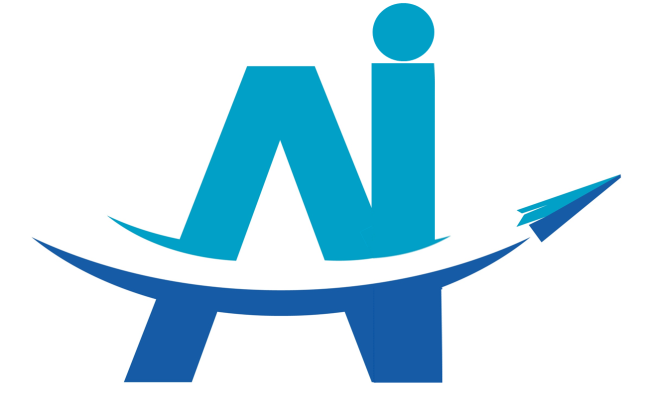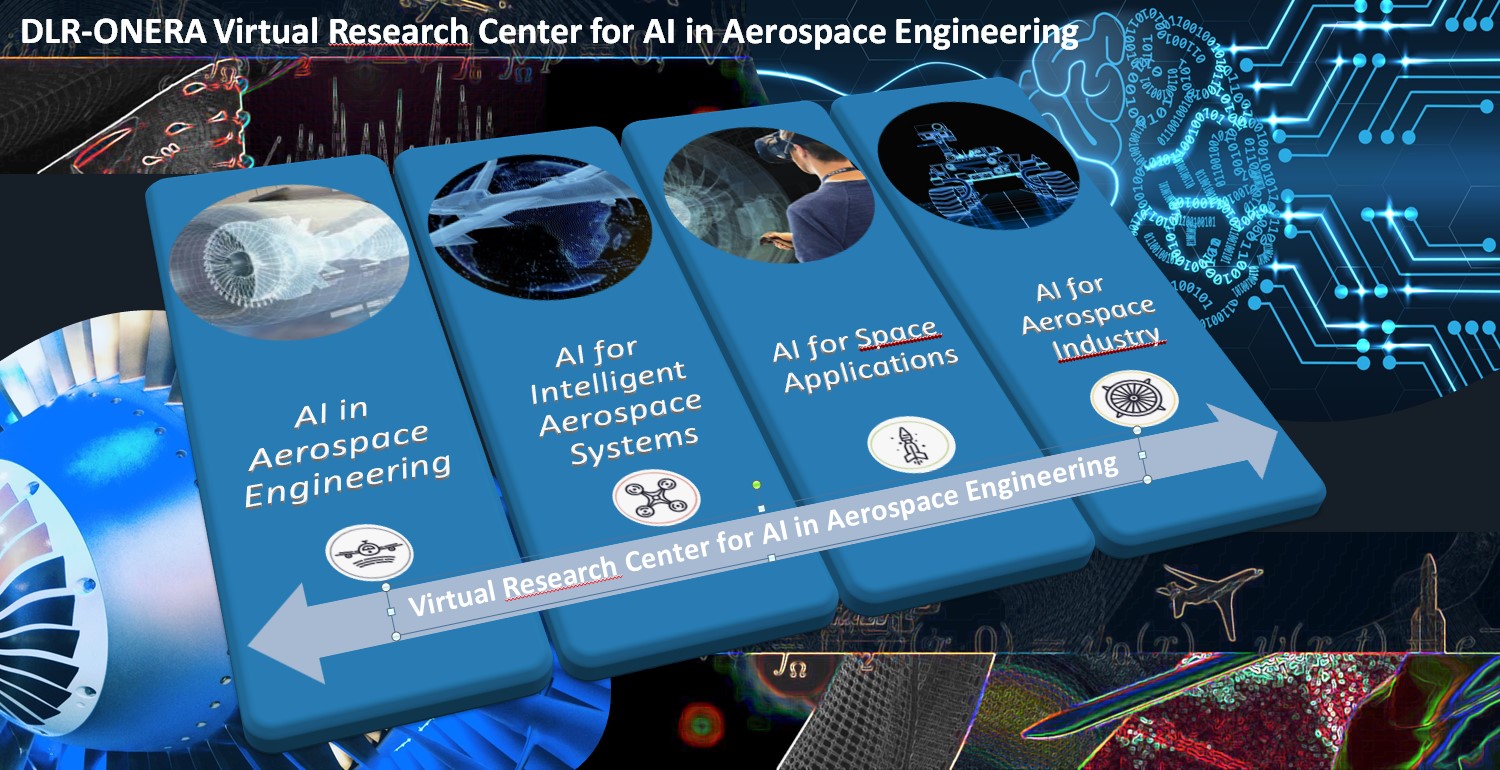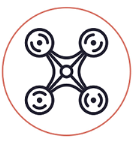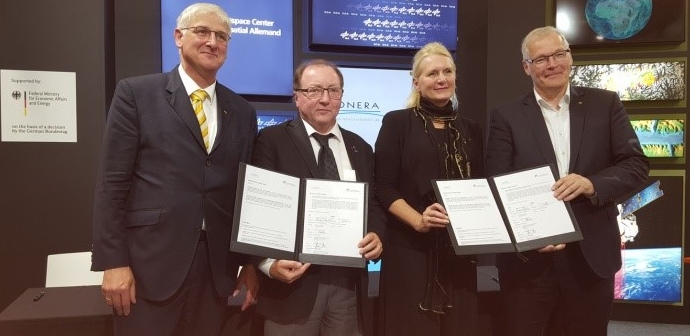- Home
- DLR-ONERA Virtual Research Center for Artificial Intelligence in Aerospace Engineering
DLR-ONERA Virtual Research Center for Artificial Intelligence in Aerospace Engineering
 Based on many years of fruitful cooperation and to meet the challenges of building a Franco-German axis in AI and its applications desired by both countries (Franco-German agreement), ONERA and DLR have initiated cooperation in AI and its applications to Aerospace Engineering through a Virtual Research Centre to contribute to the digital transformation of the Aeronautics and Space industry.
Based on many years of fruitful cooperation and to meet the challenges of building a Franco-German axis in AI and its applications desired by both countries (Franco-German agreement), ONERA and DLR have initiated cooperation in AI and its applications to Aerospace Engineering through a Virtual Research Centre to contribute to the digital transformation of the Aeronautics and Space industry.
Research topics at Joint Virtual Research Center for Artificial Intelligence in Aerospace Engineering


AI in aerospace: data-based & data-driven physical modeling, simulation-based certification, reduced models for multidisciplinary optimization, expert systems for design, etc.

AI for intelligent aerospace systems: autonomy and safety of aerospace systems, robotic systems, monitoring and assistance in piloting and operations, "confidence/explanability" of AI.

AI for space applications: earth observation, space exploration/exploitation, system design, in-orbit maintenance, etc.

AI in the aerospace industry: for manufacturing, assembly and maintenance, etc.
These areas of major challenge for AI will give rise to research projects implemented in particular through a joint PhD and post-doc fellowship program but also with the help of other instruments such as those proposed by the two countries and at European level.
Associated joint fellowship and mobility program
To support part of the joint research decided within the framework of the VRC, a certain number of PhDs and postdocs can be supported by internal resources to work on research topics established and supervised by researchers from both institutions
Funding for a given PhD or postdoc research topic is provided by one or other of the institutions. The methods of funding, selection of candidates and registration for doctoral training depend upon the institutions. The funding institution appears on the offers of theses and post-docs. The thesis is carried out on a time-sharing basis between the institutions, the location being determined according to the benefit of the research and the doctoral student / post-doc.
PhD & PostDoc offers
PhD thesis topics on which candidates are sought are listed below
-
Development of machine- learned expert systems for high-fidelity computational Fluid Dynamics simulations in the framework of CODA (Görtz, AS) DLR funded
-
Deep learning on synthetic data applied to radar imagery ONERA PHY-DEMR-2020-04
-
Explanation of the Artificial Agent: Exploring the content and format of human interaction with AI ONERA TIS-DTIS-2020-46
-
Robust and reliable decision making of autonomous unmanned aerial vehicles using heterogeneous data sources (Basermann, SC) DLR funded
-
Reinforcement learning for robotic exploration ONERA TIS-DTIS-2020-51
-
Tactile and haptic interaction for piloting assistance ONERA TIS-DTIS-2020-11
-
Development of an Artificial-Intelligence-Core-Module for an Intelligent-Pilot-Advisory-System (FL) DLR funded
-
Artificial intelligence and transparency: predictability, sense of control and trust ONERA TIS-DTIS-2020-12
-
Deep wall models for aerodynamic simulations ONERA MFE-DAAA-2020-25
-
Detection of targets under vegetal cover with SAR time-series using deep learning methods ONERA TIS-DTIS-2020-40
-
SHM and AI for the maintenance of Aeronautic Structures (Peter Wierach, FA) DLR funded
One postdoct opportunity is open to applications:
- Design of experiments and surrogate models for aerodynamic data PDOC-TIS-DTIS-2020-03
How to apply
To apply, please visit the establishment's website: ONERA, DLR
For questions : sylvain.gaultier@onera.fr
Signature of the DLR-ONERA agreement

Hansjörg Dittus, member of the Executive Committee for Space (DLR),
Bruno Sainjon, President of ONERA,
Pascale Ehrenfreund, President of the Executive Committee (DLR),
Rolf Henke, member of the Executive Committee for Aeronautics (DLR) at the signing of the agreement to create the VRC at the Paris Air Show in June 2019.